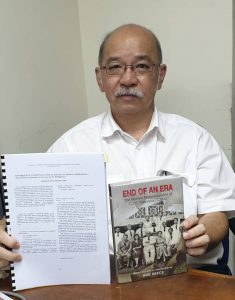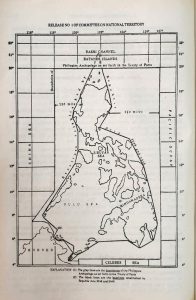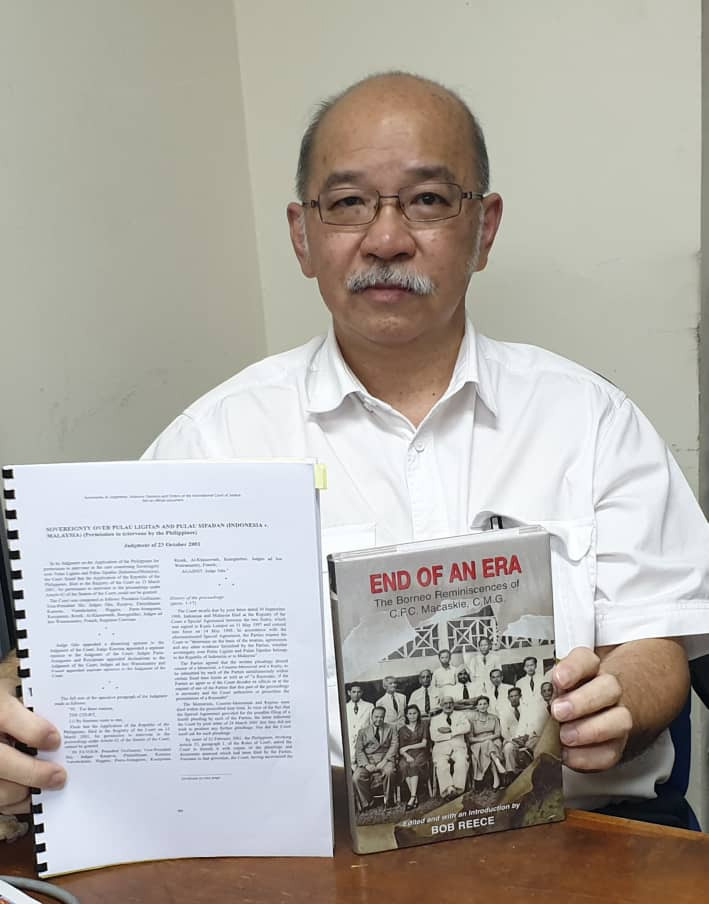KOTA KINABALU: The reckless actions of Philippines politicians to put Sabah in the Philippine map of Philippines passports is extremely provocative and will only make it very difficult for Filipino citizens to come to Malaysia. The Malaysian immigration authorities must not stamp these passports of Filipinos coming to Malaysia because to do so could mean a recognition of the Philippines/Sulu claim to Sabah. This means that the holders of these Philippines passports will not be allowed entry into Malaysia.

As for those Filipino citizens who are illegally in Sabah, they will have more reasons to not carry a Filipino passport. They will prefer to possess Malaysian residency papers. This will provoke Malaysians and anger Sabahans. As a result, things will become harder for Filipino citizens as they will be looked upon with greater suspicion. In other words, putting Sabah in the Philippines passport map will be jeopardising the Philippines citizens in Malaysia. Therefore, it would be in the best interests of the Filipino citizens in Sabah to demand that their government stop all these provocations against Sabah in Malaysia.
It is in the interests of the Philippines to forget about their claim once and for all. They have absolutely no chance of success.
*Two little known facts need to be aired*
The so-called Macaskie judgement. Judge Charles Macaskie was the High Court judge in the then North Borneo. He had presided over the 1939 case of Dayang Dayang, who are daughters of the Sultan of Sulu, over proprietary claims to the “cession money” payable to the heirs of Sultan of Sulu.
In his memoirs written in 1946 but published only in 2011, “End of an Era, The Borneo Reminiscences of C.F.C. Macaskie, C.M.G.”, Macaskie has expressed his view that the Sulu “claim to sovereignty was de facto non-existent.” This view effectively nullified any talk that the Macaskie judgement conferred some legitimacy to the Sulu claim to Sabah.
Of greater legal significance is the famous “Case concerning Sovereignty over Pulau Ligitan and Pulau Sipadan”. Malaysia and Indonesia had signed a Special Agreement on 31 May 1997 to present to the International Court of Justice “to determine whether sovereignty over Pulau Ligitan and Pulau Sipadan belongs to Indonesia or Malaysia.”
This agreement was rectified on 14 May 1998. The Sabah government, of which I was the Chief Minister at the time, had concurred with the decision of Federal government to let the dispute over Ligitan and Sipadan islands be settled at the ICJ. On 17 December 2002, the ICJ awarded sovereignty to Malaysia. The ten-year period for Indonesia to appeal, should any new evidence arise, has long gone.
*Philippines claim was buried*
On 13 March 2001, the Philippines had tried to sneak in their Sabah claim by filing an intervention in the case between Malaysia and Indonesia. The Philippines claimed that the two islands belong to them by virtue of their claim that Sabah belongs to them (Philippines). But the Philippines’s adventurous application to intervene in the case was thrown out by the ICJ on 23 October 2001. The ICJ had concluded that “the Philippines has not discharged its obligation to convince the court that specified legal interests may be affected.” In simple language, the Philippines has no legal basis to claim Sabah and therefore, no claim to Ligitan and Sipadan islands. Any fanciful illusion of any legal recourse to take the Philippines/Sulu claim to Sabah to any international judicial forum has thus been buried in 2001.
*Then, the 2019 Madrid Arbitration court case happened*
Years later, the Sabah Chief Minister, who is also the MP for Semporna, spoke in Parliament and called for the Philippines claim to Sabah to be brought to the ICJ. Such a speech, available in Youtube, was sure to trigger hopes among Philippine/Sulu claimants, such as the Kiram family, that their claim to Sabah can be taken to an international court.
*Who funded the Kiram family case at Spain?*
Sure enough, the Kiram family took their case to the Madrid Arbitration Court in 2019 and obtained some sort of arbitration order. My repeated challenges to the then Malaysian Minister for Law, Datuk V.K. Liew, and the Sabah Chief Minister, to state what they had done to resist the Kiram family court action in Madrid, have been met with silence. It costs a few million Ringgit to take such a case to an international court. How could the Kiram family, who is known to be poor, afford such costs? The government must investigate and get to the bottom of any treasonous attempts to stir up the Philippines/Sulu claim to Sabah.
The Philippines/Sulu claim to Sabah has absolutely no basis in law and in politics. The claim, however, can embolden the big number of illegal immigrants from the Philippines. If they believe that Sabah belongs to them, then they become more daring to resist the law enforcement authorities in Malaysia.
*More aggressive campaign needed*
Therefore, both the Malaysian federal and Sabah state governments have to be more aggressive and proactive in countering the propaganda among the people of the Philippines. The message to the Philippines must be that there is no hope, no chance and no basis for the Philippines and Sulu to claim any part of Sabah.
*Sabah government must stop sending wrong signals to the Philippines*
The Sabah Chief Minister and, especially his former deputy minister of Home Affairs, Datuk Azis Jamman, have to stop sending the wrong signals to illegal immigrants that the Sabah government welcomes their presence. They must cancel their decision to allocate an island for immigrants from the Southern Philippines. They must reverse their allocation of lands for illegal squatters. They must stop giving excuses that the Philippines do not want to take back their citizens who are deported from Sabah.
Our campaign must reiterate the one and only map of the Republic of Philippines as contained in the American-Spain Paris Treaty 1898 that created the Philippines. Sabah is clearly never a part of the Philippines.
(See map attached).-
Datuk Yong Teck Lee
Chief Minister 28 May 1996 to 27 May 1998







